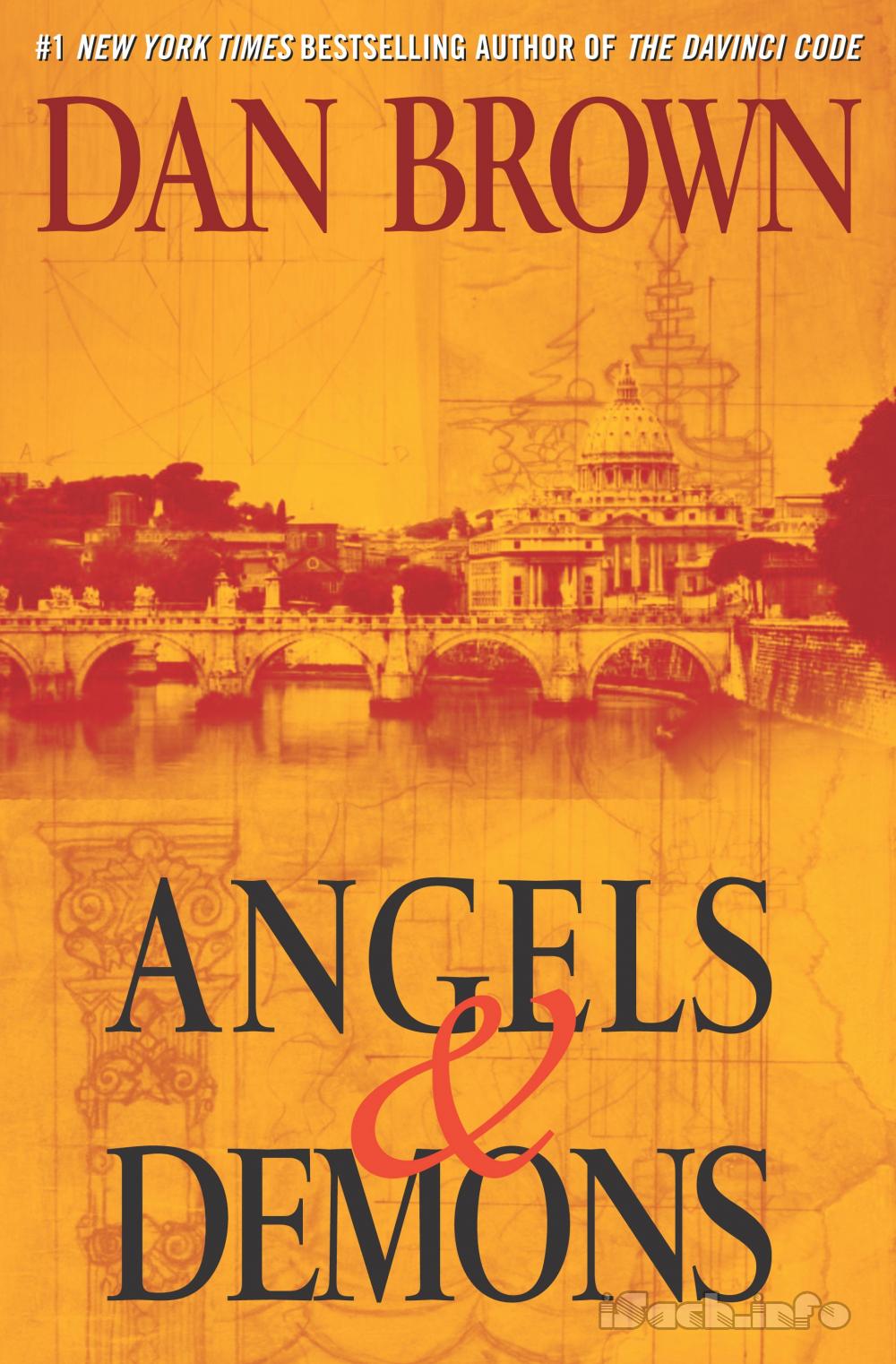Chapter 64
L
angdon and Vittoria’s taxi completed the one-mile sprint up the wide Via della Scrofa in just over a minute. They skidded to a stop on the south side of the Piazza del Popolo just before eight. Not having any lire, Langdon overpaid the driver in U.S. dollars. He and Vittoria jumped out. The piazza was quiet except for the laughter of a handful of locals seated outside the popular Rosati Café—a hot spot of the Italian literati. The breeze smelled of espresso and pastry.Langdon was still in shock over his mistake at the Pantheon. With a cursory glance at this square, however, his sixth sense was already tingling. The piazza seemed subtly filled with Illuminati significance. Not only was it laid out in a perfectly elliptical shape, but dead center stood a towering Egyptian obelisk—a square pillar of stone with a distinctively pyramidal tip. Spoils of Rome’s imperial plundering, obelisks were scattered across Rome and referred to by symbologists as “Lofty Pyramids”—skyward extensions of the sacred pyramidal form.
As Langdon’s eyes moved up the monolith, though, his sight was suddenly drawn to something else in the background. Something even more remarkable.
“We’re in the right place,” he said quietly, feeling a sudden exposed wariness. “Have a look at that.” Langdon pointed to the imposing Porta del Popolo—the high stone archway at the far end of the piazza. The vaulted structure had been overlooking the piazza for centuries. Dead center of the archway’s highest point was a symbolic engraving. “Look familiar?”
Vittoria looked up at the huge carving. “A shining star over a triangular pile of stones?”
Langdon shook his head. “A source of Illumination over a pyramid.”
Vittoria turned, her eyes suddenly wide. “Like... the Great Seal of the United States?”
“Exactly. The Masonic symbol on the one-dollar bill.”
Vittoria took a deep breath and scanned the piazza. “So where’s this damn church?”
The Church of Santa Maria del Popolo stood out like a misplaced battleship, askew at the base of a hill on the southeast corner of the piazza. The eleventh-century stone aerie was made even more clumsy by the tower of scaffolding covering the façade.
Langdon’s thoughts were a blur as they raced toward the edifice. He stared up at the church in wonder. Could a murder really be about to take place inside? He wished Olivetti would hurry. The gun felt awkward in his pocket.
The church’s front stairs were ventaglio—a welcoming, curved fan—ironic in this case because they were blocked with scaffolding, construction equipment, and a sign warning: CONSTRUZZIONE. NON ENTRARE.
Langdon realized that a church closed for renovation meant total privacy for a killer. Not like the Pantheon. No fancy tricks needed here. Only to find a way in.
Vittoria slipped without hesitation between the sawhorses and headed up the staircase.
“Vittoria,” Langdon cautioned. “If he’s still in there...”
Vittoria did not seem to hear. She ascended the main portico to the church’s sole wooden door. Langdon hurried up the stairs behind her. Before he could say a word she had grasped the handle and pulled. Langdon held his breath. The door did not budge.
“There must be another entrance,” Vittoria said.
“Probably,” Langdon said, exhaling, “but Olivetti will be here in a minute. It’s too dangerous to go in. We should cover the church from out here until—”
Vittoria turned, her eyes blazing. “If there’s another way in, there’s another way out. If this guy disappears, we’re fungito.”
Langdon knew enough Italian to know she was right.
The alley on the right side of the church was pinched and dark, with high walls on both sides. It smelled of urine—a common aroma in a city where bars outnumbered public rest rooms twenty to one.
Langdon and Vittoria hurried into the fetid dimness. They had gone about fifteen yards down when Vittoria tugged Langdon’s arm and pointed.
Langdon saw it too. Up ahead was an unassuming wooden door with heavy hinges. Langdon recognized it as the standard porta sacra—a private entrance for clergy. Most of these entrances had gone out of use years ago as encroaching buildings and limited real estate relegated side entrances to inconvenient alleyways.
Vittoria hurried to the door. She arrived and stared down at the doorknob, apparently perplexed. Langdon arrived behind her and eyed the peculiar donut-shaped hoop hanging where the doorknob should have been.
“An annulus,” he whispered. Langdon reached out and quietly lifted the ring in his hand. He pulled the ring toward him. The fixture clicked. Vittoria shifted, looking suddenly uneasy. Quietly, Langdon twisted the ring clockwise. It spun loosely 360 degrees, not engaging. Langdon frowned and tried the other direction with the same result.
Vittoria looked down the remainder of the alley. “You think there’s another entrance?”
Langdon doubted it. Most Renaissance cathedrals were designed as makeshift fortresses in the event a city was stormed. They had as few entrances as possible. “If there is another way in,” he said, “it’s probably recessed in the rear bastion—more of an escape route than an entrance.”
Vittoria was already on the move.
Langdon followed deeper into the alley. The walls shot skyward on both sides of him. Somewhere a bell began ringing eight o’clock...
Robert Langdon did not hear Vittoria the first time she called to him. He had slowed at a stained-glass window covered with bars and was trying to peer inside the church.
“Robert!” Her voice was a loud whisper.
Langdon looked up. Vittoria was at the end of the alley. She was pointing around the back of the church and waving to him. Langdon jogged reluctantly toward her. At the base of the rear wall, a stone bulwark jutted out concealing a narrow grotto—a kind of compressed passageway cutting directly into the foundation of the church.
“An entrance?” Vittoria asked.
Langdon nodded. Actually an exit, but we won’t get technical.
Vittoria knelt and peered into the tunnel. “Let’s check the door. See if it’s open.”
Langdon opened his mouth to object, but Vittoria took his hand and pulled him into the opening.
“Wait,” Langdon said.
She turned impatiently toward him.
Langdon sighed. “I’ll go first.”
Vittoria looked surprised. “More chivalry?”
“Age before beauty.”
“Was that a compliment?”
Langdon smiled and moved past her into the dark. “Careful on the stairs.”
He inched slowly into the darkness, keeping one hand on the wall. The stone felt sharp on his fingertips. For an instant Langdon recalled the ancient myth of Daedelus, how the boy kept one hand on the wall as he moved through the Minotaur’s labyrinth, knowing he was guaranteed to find the end if he never broke contact with the wall. Langdon moved forward, not entirely certain he wanted to find the end.
The tunnel narrowed slightly, and Langdon slowed his pace. He sensed Vittoria close behind him. As the wall curved left, the tunnel opened into a semicircular alcove. Oddly, there was faint light here. In the dimness Langdon saw the outline of a heavy wooden door.
“Uh oh,” he said.
“Locked?”
“It was.”
“Was?” Vittoria arrived at his side.
Langdon pointed. Lit by a shaft of light coming from within, the door hung ajar... its hinges splintered by a wrecking bar still lodged in the wood.
They stood a moment in silence. Then, in the dark, Langdon felt Vittoria’s hands on his chest, groping, sliding beneath his jacket.
“Relax, professor,” she said. “I’m just getting the gun.”
At that moment, inside the Vatican Museums, a task force of Swiss Guards spread out in all directions. The museum was dark, and the guards wore U.S. Marine issue infrared goggles. The goggles made everything appear an eerie shade of green. Every guard wore headphones connected to an antennalike detector that he waved rhythmically in front of him—the same devices they used twice a week to sweep for electronic bugs inside the Vatican. They moved methodically, checking behind statues, inside niches, closets, under furniture. The antennae would sound if they detected even the tiniest magnetic field.
Tonight, however, they were getting no readings at all.



 ePub
ePub A4
A4